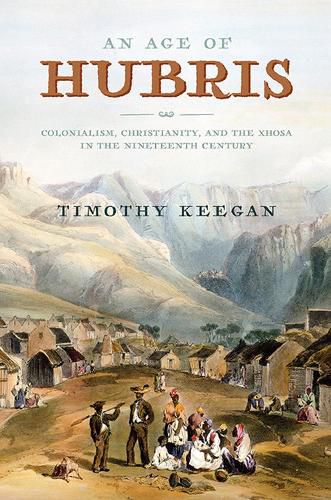Readings Newsletter
Become a Readings Member to make your shopping experience even easier.
Sign in or sign up for free!
You’re not far away from qualifying for FREE standard shipping within Australia
You’ve qualified for FREE standard shipping within Australia
The cart is loading…






An Age of Hubris is the first comprehensive overview of the impact of missionary enterprise on the Xhosa chiefdoms of South Africa in the first half of the nineteenth century, chronicling a world punctuated by war and millenarian eruptions, and the steady encroachment of settler land hunger and colonial hegemony. With it, Timothy Keegan contributes new approaches to Xhosa history and, most important, a new dimension to the much-trodden but still vital topic of the impact-cultural, social, and political-of missionary activity among African peoples.
The most significant historical works on the Xhosa have either become dated, foreground imperial-colonial history, or remain heavily theoretical in nature. In contrast, Keegan draws fruitfully on the rich Africanist comparative and anthropological literature now available, as well as extant primary sources, to foreground the Xhosa themselves in this crucial work. In so doing, he highlights the ways in which Africans utilized new ideas, resources, and practices to make sense of, react to, and resist the forces of colonial dispossession confronting them, emphasizing missionary frustration and African agency.
$9.00 standard shipping within Australia
FREE standard shipping within Australia for orders over $100.00
Express & International shipping calculated at checkout
An Age of Hubris is the first comprehensive overview of the impact of missionary enterprise on the Xhosa chiefdoms of South Africa in the first half of the nineteenth century, chronicling a world punctuated by war and millenarian eruptions, and the steady encroachment of settler land hunger and colonial hegemony. With it, Timothy Keegan contributes new approaches to Xhosa history and, most important, a new dimension to the much-trodden but still vital topic of the impact-cultural, social, and political-of missionary activity among African peoples.
The most significant historical works on the Xhosa have either become dated, foreground imperial-colonial history, or remain heavily theoretical in nature. In contrast, Keegan draws fruitfully on the rich Africanist comparative and anthropological literature now available, as well as extant primary sources, to foreground the Xhosa themselves in this crucial work. In so doing, he highlights the ways in which Africans utilized new ideas, resources, and practices to make sense of, react to, and resist the forces of colonial dispossession confronting them, emphasizing missionary frustration and African agency.